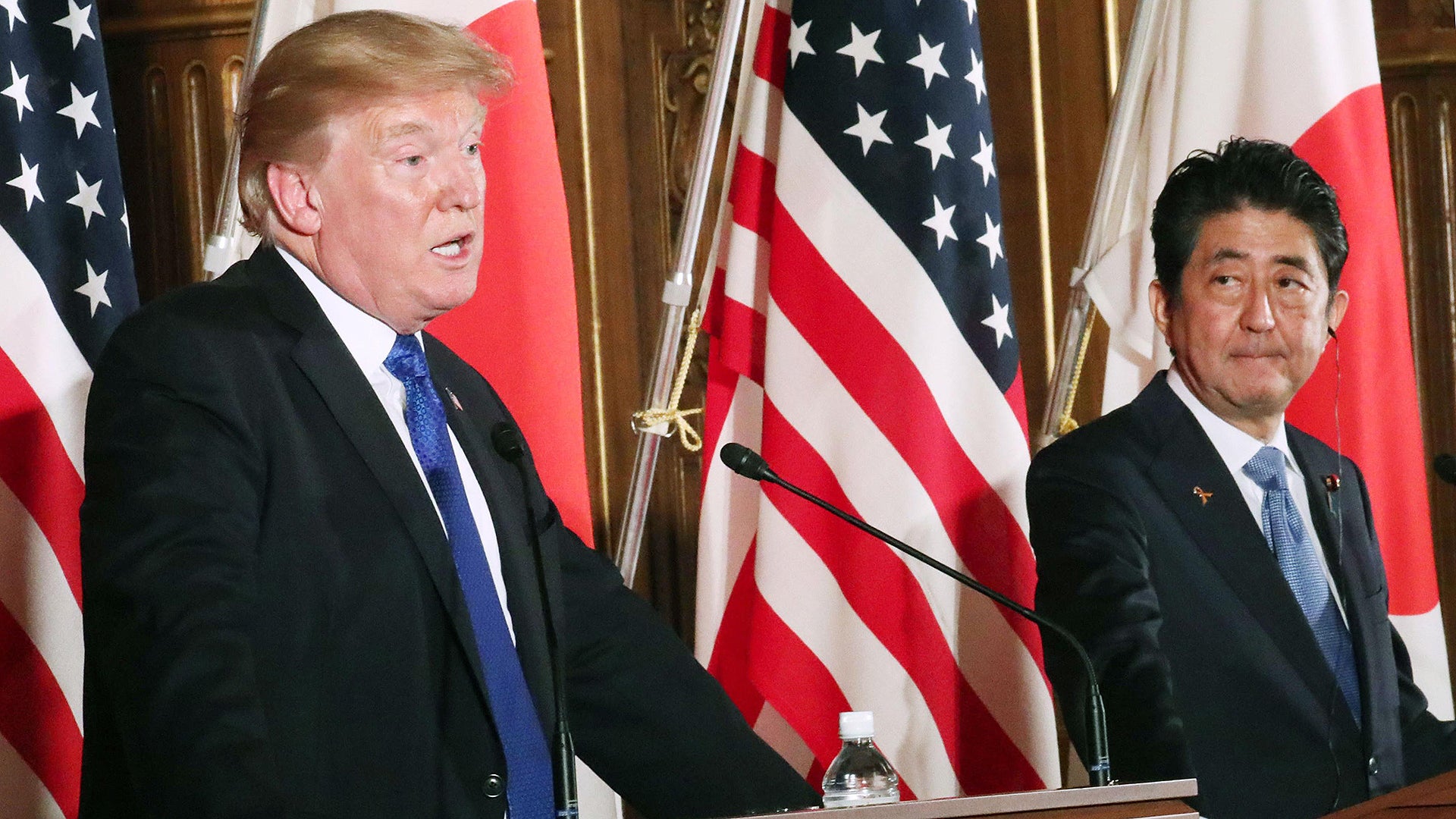By now it’s clear that President Donald Trump doesn’t understand America’s ballistic missile defense (BMD) capabilities. Time and time again he has made peculiar statements about the subject that illustrate a glaring lack of understanding of the topic. Many will rush to his defense saying that he ‘leaves the details to the generals,’ but that is a very concerning argument in itself as the real-world strategic decisions will be made the President alone, and having major misconceptions about America’s ability to defend itself—not to mention our allies—against a ballistic missile strike invites undue strategic risk and potentially devastatingly bad decision making.
Early last October, talking to Sean Hannity, Trump claimed that America’s BMD system is 97 percent effective, stating “We have missiles that can knock out a missile in the air 97% of the time, and if you send two of ’em it’s going to get knocked down.”
This statement was absurdly inaccurate and downright frightening. As we have discussed in detail before, America’s ICBM defenses are far from a reliable shield of any sort and rely on a rickety assortment of sea, ground, and space-based sensors, as well as various data links and kinetic weaponry, all working together on very short notice to accomplish their mission. Tests have largely occurred under far less than real world conditions, and making things worse, the system is widely untested against even small missile salvos.
We have no idea where he got such an outrageously wrong figure from, or who inspired such high confidence in such a questionable system, but whatever the case may be, this is what he believes and that’s a major problem.
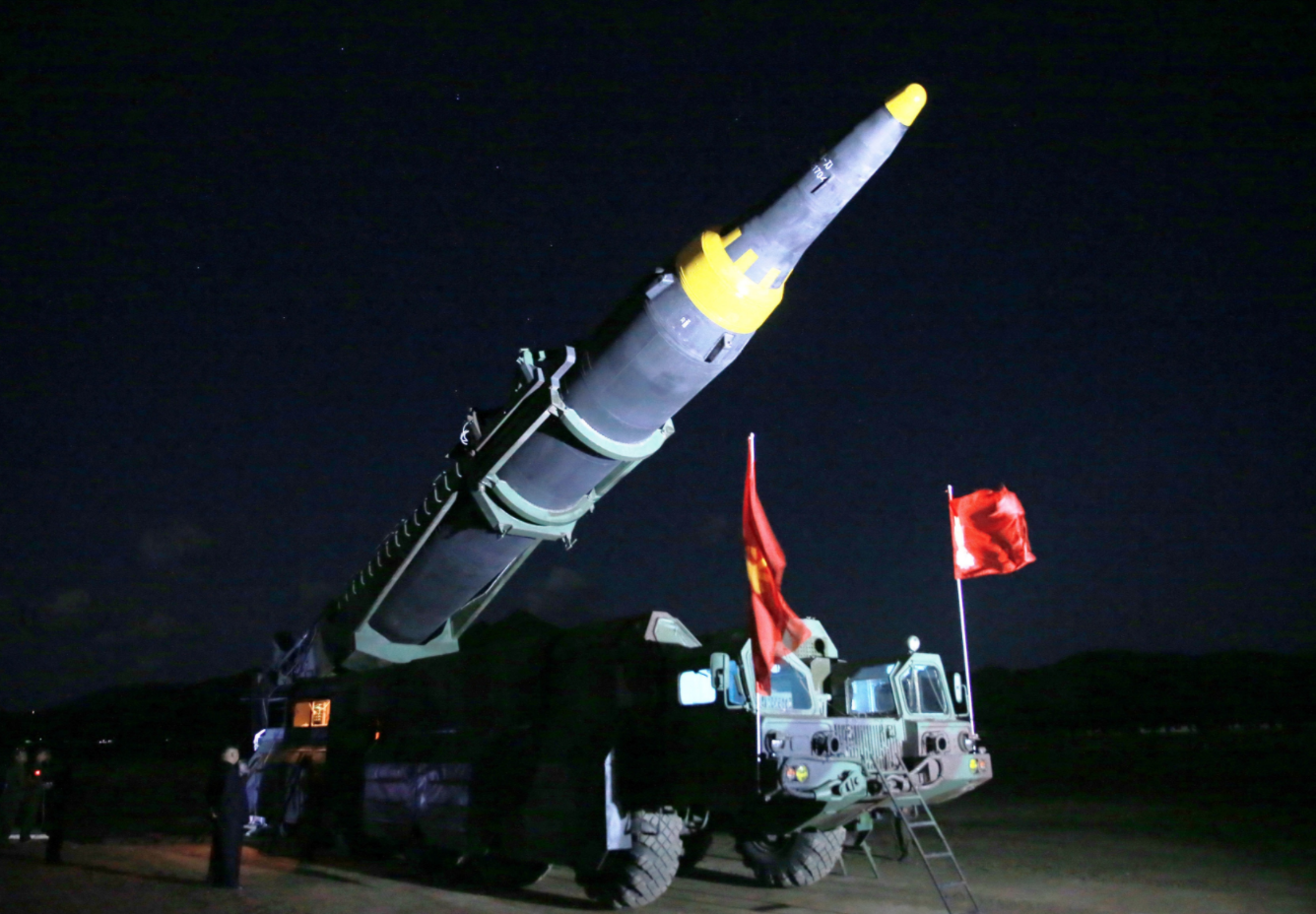
Then on November 5th, 2017 Japan Times reported that Trump said he “could not understand why a country of samurai warriors did not shoot down the missiles.” The missiles he was referring to were the Hwasong-12 Intermediate range ballistic missiles (IRBMs) that North Korea fired over Japan late last August.
The statement, which the White House has not refuted, once again shows a critical misunderstanding of ballistic missile defense, and especially Japan’s ability to swat North Korean missiles down with ease. Although Japan does have five Aegis ballistic missile defense system equipped destroyers which are capable of firing SM-3 interceptors at short to intermediate-range ballistic missiles, one of these ships would have to have been sitting picket duty within the engaged envelope of the HS-12’s flight profile when it was fired.
Not just that, but if one of these ships was in the area on missile defense duty, it would have needed standing orders to attempt a shoot down even if the missile was clearly just traversing Japanese territory, not headed on a trajectory to strike it. And even then, the speed and altitude that the HS-12 was flying at may have been outside the current SM-3’s engagement envelope. An improved interceptor with expanded engagement reach, the SM-3 Block IIA, is currently being developed by both the U.S. and Japan for this exact purpose.

With all this in mind it’s not exactly as if Japan chose to be cowardly and ignore North Korea’s provocative IRBM launches, and evoking the country’s warrior culture past was just childish and unfounded.
Trump’s misunderstanding of ballistic missile defense in relation to Japan—and just in general—reared its head again yesterday during a joint press conference with Prime Minister Abe. During the presser, trump responded to a reporter’s question as such:
“…I will say, if I could just take a piece of the Prime Minister’s answer—he will shoot them out of the sky when he completes the purchase of lots of additional military equipment from the United States. He will easily shoot them out of the sky, just like we shot something out of the sky the other day in Saudi Arabia, as you saw. And that was a very rapidly moving missile shot out of the sky. That was a needle in the sky, and it was hit immediately and exploded without damage.
So one of the things, I think, that’s very important is that the Prime Minister of Japan is going to be purchasing massive amounts of military equipment, as he should. And we make the best military equipment, by far. He’ll be purchasing it from the United States. Whether it’s the F-35 fighter, which is the greatest in the world—total stealth—or whether it’s missiles of many different kinds, it’s a lot of jobs for us and a lot of safety for Japan and other countries that are likewise purchasing a lot of military equipment from us that, frankly, a year ago and two years ago were not.”
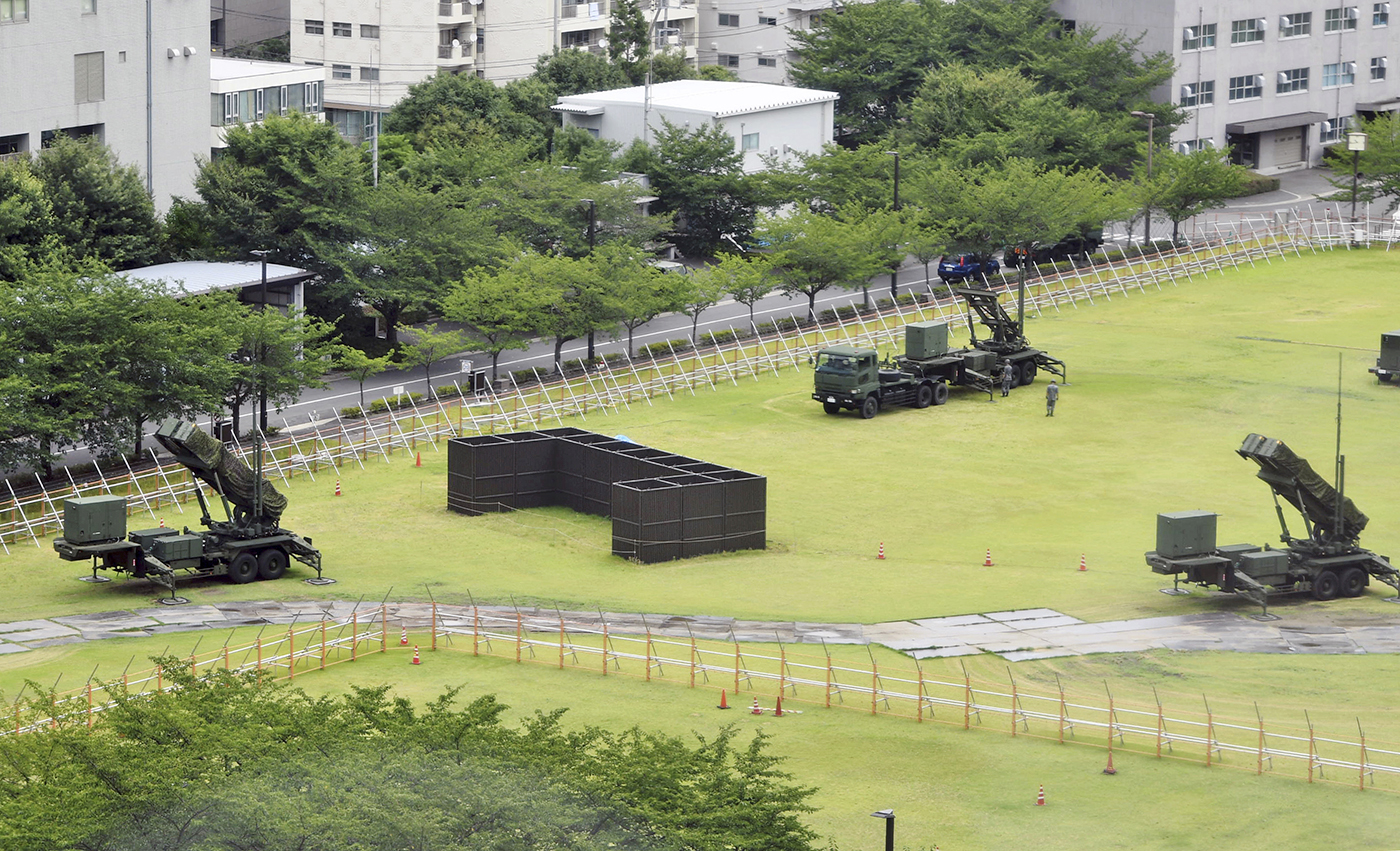
The President is referencing the shoot down just a day before of a Burkan 2 medium-range ballistic missile fired by Houthi rebels in Yemen at King Khalid International Airport in Riyadh, Saudi Arabia. That missile was in fact intercepted by a PAC-3 Patriot battery, the same exact type of missile system capable of intercepting shorter-ranged ballistic missiles during their terminal phase of flight that was protecting the President and all of Tokyo while he was speaking those words. So he was touting a capability Japan already has in quite extensive numbers, and it is nowhere near capable of swatting down longer-range ballistic missiles or those transiting Japanese airspace during their mid-course phase of flight.
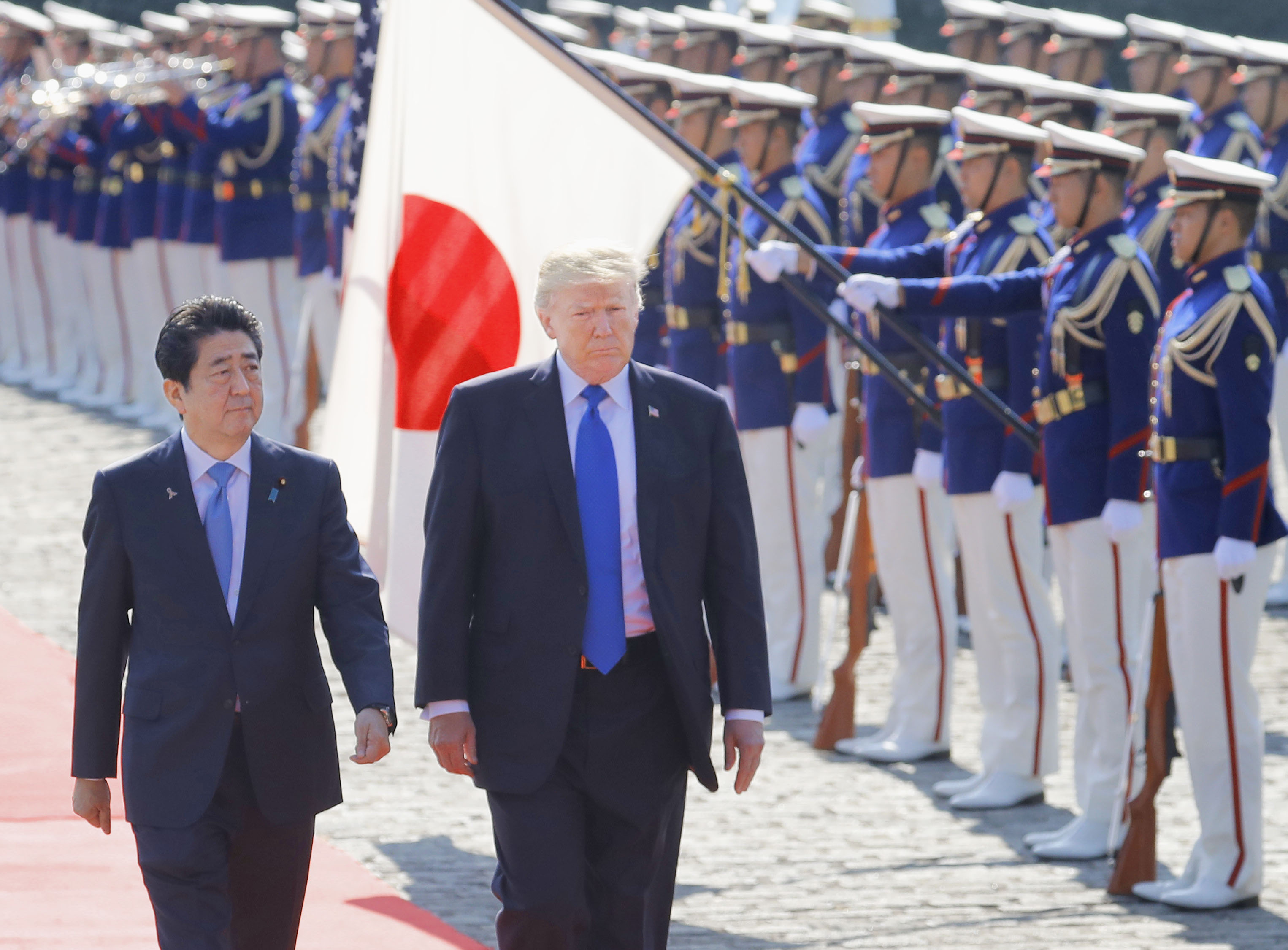
We were one of the first to report that Japan is in the processing of procuring Aegis Ashore installations which will give them persistent land-based midcourse intercept capabilities against everything up to an IRBM class missile. These installations will likely feature the new SPY-6 radar array which will give them greater sensor fidelity and range than existing Aegis Ashore installations based around the SPY-1 radar array. Officials from Japan’s Ministry of Defense will be heading to Hawaii soon to check out the test SPY-6 radar site there before they finalize the deal. But none of this has to do with Saudi Arabia’s anti-ballistic capabilities which Japan already has, and the Kingdom is receiving the THAAD system, not Aegis Ashore, in the future.
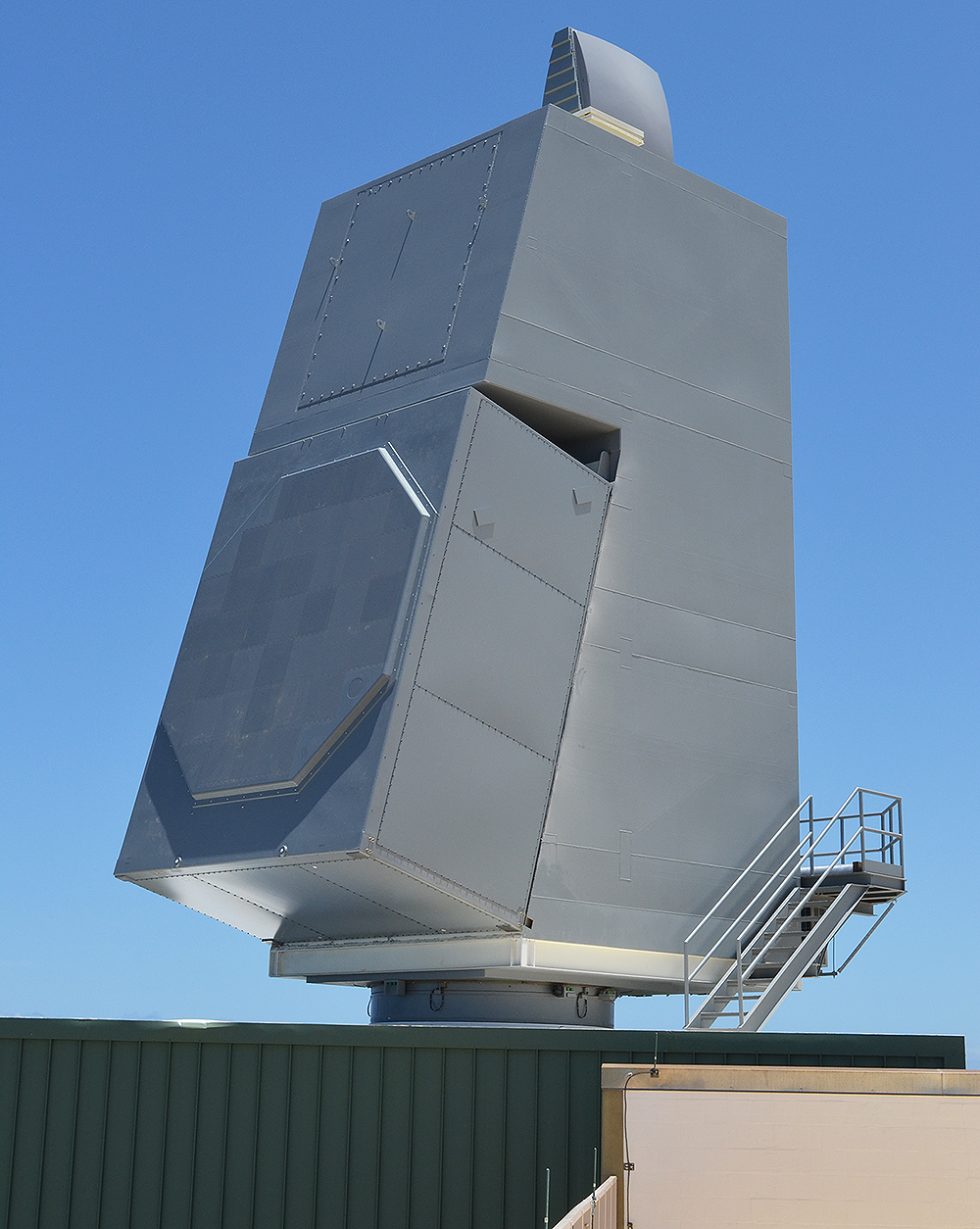
Nobody is saying that the President needs to be a weapon systems expert, but when it comes to missile defense it is critical that he or she comprehends the basic capability types, including their real-world limitations, and how they fit into a larger strategic picture. Just thinking that America is protected by some nearly impenetrable ballistic missile shield and that we can sell something similar to our allies will result in a poor understanding of the overall strategic equation in an entire region. Most importantly it will give a false sense of security to the worst person possible—the individual that will be making major policy and military calls—potentially on very short notice.
Metaphorically speaking, throughout history, in many cases when a commander’s troops are equipped with heavy armor, that commander is likely to have them take more risks on the battlefield. But if that armor is far less effective than the commander understands it to be, what would seem like well balanced battle plan can end up being a massacre. The same applies in this case. When you think there is only a three percent chance an ICBM can hit the US, making risky foreign policy and military decisions in regards to the country with the ICBMs is simply more palatable.

These chronic misstatements are also a credibility issue. Why delve into the details if in doing so you are always inaccurate? Whether this is a flaw that can be blamed on the President’s advisors or a personal one is immaterial, but the fact that it exists is undeniable.
Hopefully someone will brief the President on the conceptual “rungs” of missile defense and what they really can and cannot do, or at the very least they will tell him to leave talk of these systems to someone who is informed enough to respond accurately without constantly embarrassing themselves and the country.
In the end the cold hard truth is that when it comes to being a successful world leader in 2017, the details actually matter. And considering the White House just asked for $4B in emergency funds for more missile defense spending, demonstrating that the President actually understands any of this would probably be a good thing.
As they say in the dog-eat-dog business world that Trump often touts: “You better know your product.”
Contact the author: Tyler@thedrive.com
